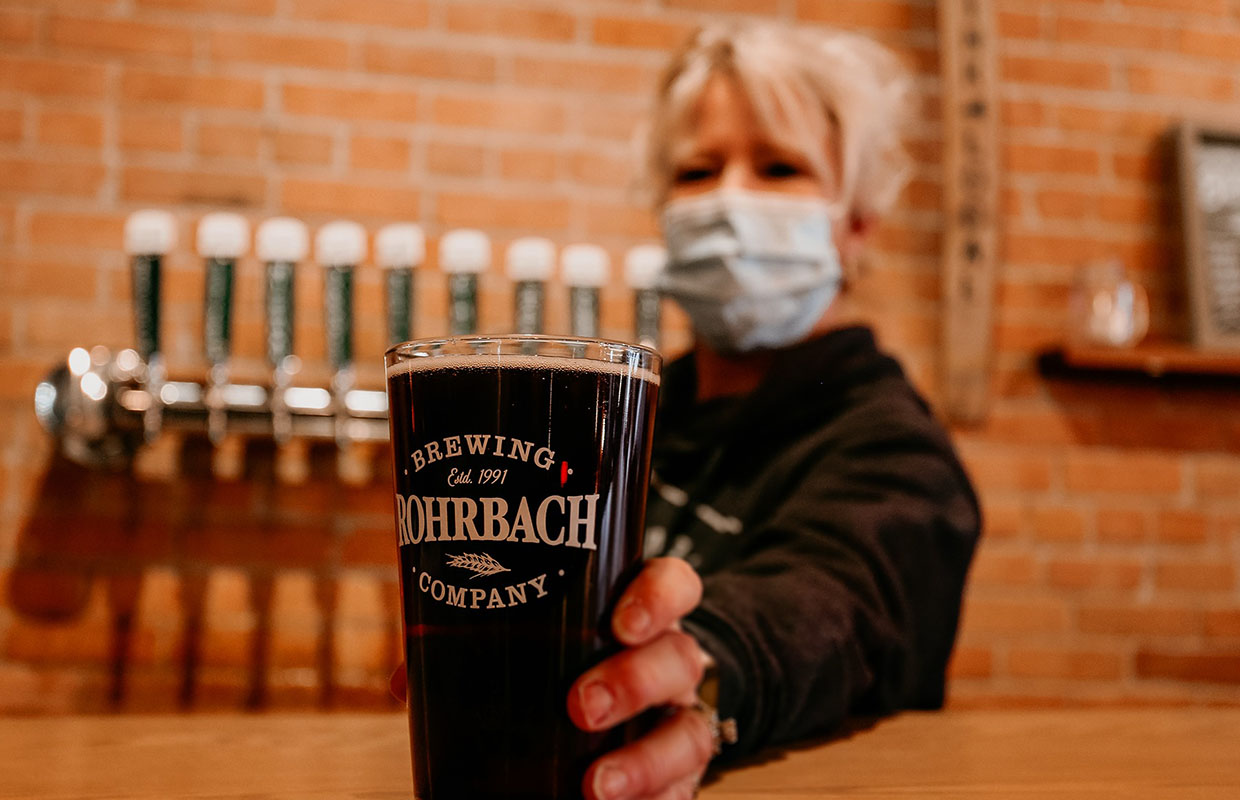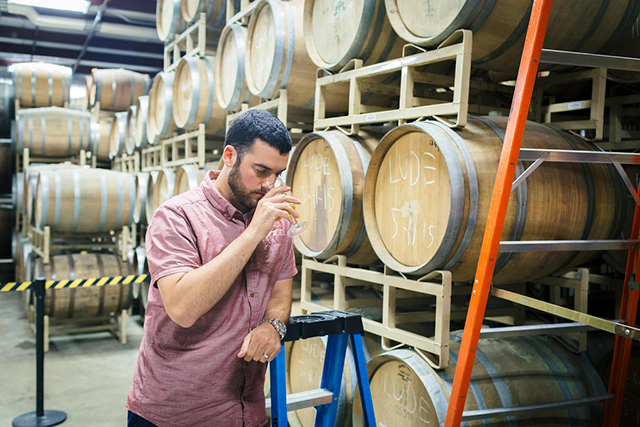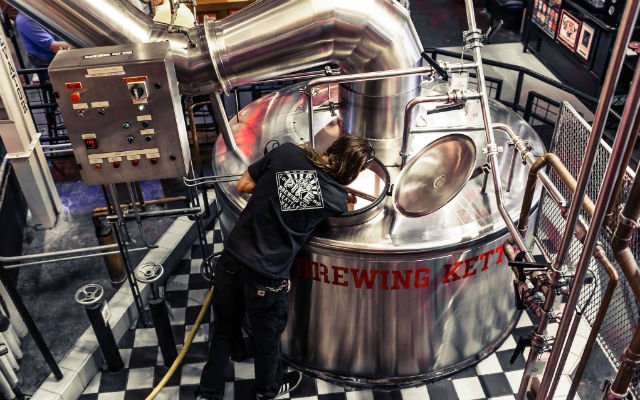
Brewer Magazine will share business and personal insights from Brewmasters, Head Brewers, Brewing Managers, Sales Directors, QCQA Managers and others each weekend to help you get to know each other better in the industry and learn more to better develop your own brand.
BREWER: How do you feel your job has had to adapt in the beer market compared to a few years ago?
TKACH: When Idle Hands launched in 2011, we were a one-man show. I did everything from the brewing to the deliveries to the sales and everything in between. We have certainly grown from those humble beginnings and my job has had to adapt in order for the business itself to continue to prosper. I no longer brew on any regular basis and spend most of my time worrying about steering the ship with a fair amount of that time making sure that our beer is being seen in the best light and reaching the accounts where it has the highest visibility. So a lot of time spent crunching numbers, directing sales and marketing efforts and working closely with our distribution partners. A far cry from standing over a kettle and cleaning fermenters all day.
BREWER: Who is your mentor in the industry and why? What have you learned from them?
TKACH: I’m not sure I have a single mentor but there are several colleagues that I look up to and ask the advice of a lot. I respect what Chris Loring at Notch Brewing is doing. I think we have a similar philosophy on what we want our breweries to be and while we compete in the market he is always happy to share nuggets of wisdom. The Marcus’ (Beth and Todd) at Cape Cod Beer always remind me of one important thing to never forget and that is, ’Do what you do well and don’t worry about what others are doing.’ Sometimes it’s hard to not get caught up on the successes and accomplishments of peers and remembering this motto always brings me back down to reality.
BREWER: Can you share a success story that you are proud of in your job or maybe a story of how you learned from a situation that has altered your thoughts on how you do your job now?
TKACH: There are so many of these tidbits but I have to give credit to my staff and their ability to take the reigns of their respective jobs and really own it. Part of that is me believing in their ability and getting out of the way and allowing them to do their jobs. I don’t micromanage them, in fact I probably should manage them a little more but I think my style of management has created a very autonomous organization where employees feel empowered to make decisions and run with ideas without fear of screwing up or of me coming down hard on them. It might be a bit of a double-edged sword and when there are misses we talk about them and hopefully learn from them but in the end I feel that what I’ve nurtured has led to a true sense of ownership and belonging with our team and maybe, just maybe everyone feels more like family than a coworker.
BREWER: Can you touch on something your brewery has added lately that’s unique or making your business more successful (it could be equipment, technology or people)?
TKACH: While not unique by any stretch of the imagination, we have finally gotten to the level where we can support a full-time sales manager and I think it has made a world of difference in terms of getting our product into the places where we want to see it. Before this year, we relied mostly upon our distributor to do a lot of the sales with minimal input from us and I think we suffered as a result. Not to knock our distributor but they have more than just our brand to sell whereby having a dedicated sales manager who is doing nothing but selling our products every single day has allowed us to grow more than we would have and has allowed us to get products that we thought were great but maybe needed a little more hand holding really into the market. So thanks Dan, keep up the hard work!
BREWER: If you had one business strategy that you could implement to better the brewing industry, what would it be?
TKACH: Consumer preferences aside, I really admire the returnable/reusable bottle concept that exists in parts of Europe and used to exist here in the US. Getting away from single-use packaging and creating infrastructure to manage reusable bottles that would allow breweries to buy already cleaned bottles ready for filling would be a big step towards meeting sustainability goals in the industry and would also get us away from the commodity fluctuations we currently see with aluminum.




Be the first to comment